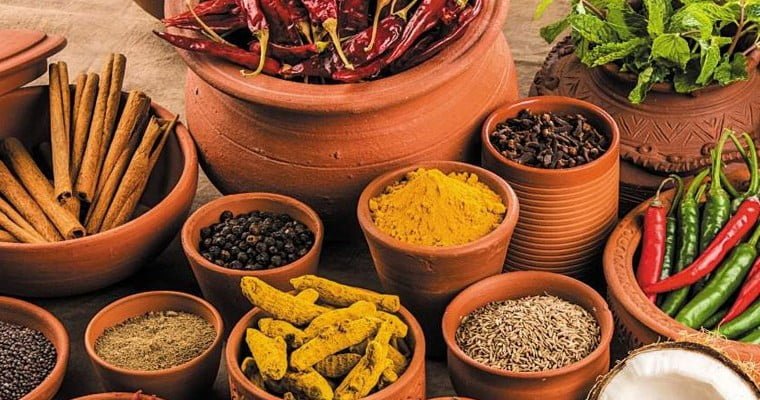In today's diligent consumer landscape, the demand for fairly sourced and also lasting products has risen. Private label food manufacturers have emerged as trendsetters in this domain, frequently working together with contract food manufacturers to spearhead sustainability and also responsible sourcing initiatives. With a tenacious dedication to environmental values, exclusive label brands have made it their mission to supply sustainable, top quality choices to consumers.
Private Label Food Manufacturers
Over the last few years, private label food manufacturers, additionally called very own brands or shop brand names, have actually seen an amazing rise in popularity. These producers generate goods marketed under the logo design of a store, grocer, or personal entity. What collections private-label products apart is their ability to provide affordable rates without compromising on quality.
Contract Food Manufacturers
Several private-label food manufacturers join pressures with agreement manufacturers to establish their product. Contract food makers are professionals in generating food products for private tags. This strategic collaboration allows exclusive label firms to use the proficiency, sources, and devoted food production centers of their partners.
Sustainability at the Core
Private label food manufacturers use different methods to boost sustainability within their supply networks:
Honest Sourcing:
Exclusive label companies are significantly dedicated to sourcing ingredients according to moral and reasonable profession standards. This requires making sure that producers and also employees of resources, such as coffee beans, flavors, or cacao, get fair settlement for their efforts.
Neighborhood Sourcing:
Prioritizing local sourcing of ingredients is one more trademark of private-label food makers. This not only minimizes the carbon impact associated with transport yet also supports local farmers and areas.
Organic Contents:

With the organic food market growing, private labels are responding by including natural components into their product lines. Organic farming methods prioritize soil wellness while eschewing artificial chemicals and also plant foods.
Lasting Fish and shellfish:
Private Label Food Manufacturers are attentive in making sure that the seafood they make use of is sustainably gathered, sticking to guidelines established by organizations like the Marine Stewardship Council, which promotes responsible angling.

Decreased Food Waste:
Private label companies are proactively working on reducing food waste by executing efficient manufacturing procedures as well as establishing items with longer life span. Some brand names are likewise partnering with food rescue organizations to donate excess food to those in requirement.
Eco-Friendly Packaging as well as Initiatives
Sustainability efforts by private-label food manufacturers prolong past sourcing components to encompass packaging and also environmentally friendly campaigns:
Sustainable Packaging:
Private label brands have actually embraced environment-friendly packaging options, including recyclable, biodegradable, or compostable materials. Revamping packaging to lessen excess product as well as reduce environmental impact is a top concern.
Waste Decrease:
To lessen wastefulness, private-label food producers optimize item dimensions, minimize excess packaging, and check out ingenious product packaging remedies. Some brands even motivate consumers to take part in reusing programs.
Energy Efficiency:
Lots of private label manufacturers are buying even more energy-efficient production plants, reducing water use, and taking on renewable resource sources to better minimize their environmental impact.
Carbon Neutral Initiatives:
Some private brand food producers are taking ambitious steps to achieve carbon nonpartisanship by offsetting their greenhouse gas emissions through reforestation jobs and also renewable energy credits.
Difficulties and the Roadway Ahead
Regardless of the substantial strides made in sustainability as well as liable sourcing, private-label food manufacturers deal with obstacles. Balancing sustainability with cost-effectiveness can be a fragile act, occasionally requiring compromises on lasting components or the expedition of green alternatives.
However, the future of private-label food manufacturing holds excellent assurance. As customer recognition as well as need for sustainable items continue to rise, private-label brands and also their agreement food manufacturing partners are likely to escalate their efforts. Cooperation with suppliers and also financial investment in sustainable technical advances and also openness will certainly be pivotal in shaping a lasting future for the industry.
Often Asked Questions
Q1: What are private label food manufacturers?
Private label food manufacturers create goods offered under the logo design of a retailer, grocer, or exclusive entity. They use competitively priced products without endangering on quality.
Q2: How do private label food manufacturers promote sustainability?
Private label food manufacturers promote sustainability via honest sourcing, neighborhood active ingredient procurement, using natural components, sustainable seafood practices, and also efforts to reduce food waste.
Q3: What green packaging options do private label brand names make use of?
Personal label brand names take on green product packaging alternatives such as recyclable, naturally degradable, or compostable materials. They additionally upgrade packaging to lessen excess product and minimize environmental effect.
Q4: What challenges do private label food manufacturers encounter in sustainability efforts?
Stabilizing sustainability with cost-effectiveness is a significant difficulty for private label food manufacturers. This may call for compromises on sustainable active ingredients or the expedition of green options.
Final thought
Private label food manufacturers go to the forefront of the sustainability and responsible sourcing motion within the food industry. Their commitment to honest sourcing, regional procurement, organic components, and also lasting practices, in addition to Fruit and vegetable market trends their dedication to environmentally friendly packaging as well as waste decrease initiatives, show their decision to satisfy the needs of today's eco-conscious consumers.
In spite of the obstacles they encounter, private label food manufacturers are positioned for an appealing future. With customers increasingly focusing on sustainability, the market is most likely to witness also better cooperation with suppliers, financial investment in sustainable modern technologies, and a dedication to openness. As we move forward, private label food manufacturers will remain to play a crucial function in shaping a much more lasting and also moral food landscape for all.